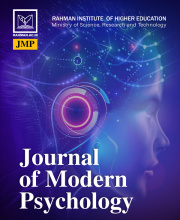Associations between Physical Activity with Self-Esteem and Perceived Motor Competence among Children with Developmental Coordination Disorder
Evidence shows that physical activity (PA) is associated with better self-esteem and perceived motor competence in typically developing children. Nonetheless, associations between PA with self-esteem and perceived motor competence among children with developmental coordination disorder (DCD) has received very little attention in the literature. As such, the purpose of this study was to survey the associations between PA with self-esteem and perceived motor competence among children with DCD. A correlational approach was used in this study. Participants were forty-nine children with DCD (mean age of 8.85 years old) from special schools. Physical Activity Questionnaire for Older Children was used for assessing PA. Self-Perception Profile for Children was used to assess self-esteem and perceived motor competence. To analyze data, we used Pearson correlation test and regression analysis. Descriptive results showed that our sample participate in very low amount of PA. In addition, they have low levels of self-esteem and perceived motor competence. Furthermore, PA was significantly and directly associated with both self-esteem and perceived motor competence. Finally, PA has significantly and directly predicted both self-esteem and perceived motor competence. Our findings emphasize on benefits of PA for improving psychological status of children with DCD. Thus, it seems necessary to find out proper strategies and interventions for increase the level of PA in this population.
